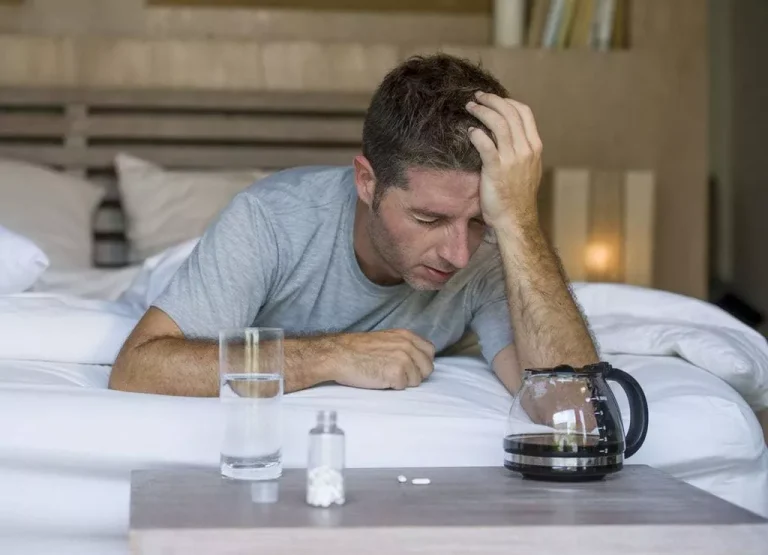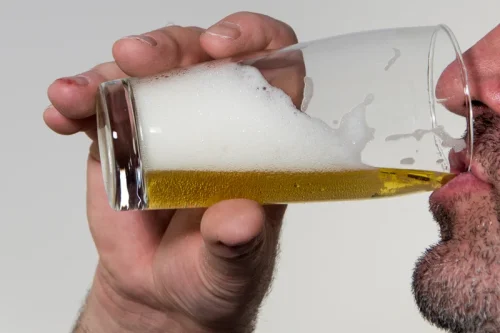
BEAN1 is linked to an unfavorable outcome, immunosuppression, and chemotherapy resistance in READ, suggesting that BEAN1 could be a valuable target for novel therapeutic strategies. Inhibiting BEAN1 may help disrupt the immunosuppressive TME, enhance the efficacy of immune checkpoint inhibitors, and overcome chemotherapy resistance. Although our research offers new perspectives on the function of BEAN1 in READ, several limitations should be acknowledged to contextualize our findings. Firstly, the sample size of our READ patient cohort was relatively small, which may limit the generalizability of our results. Although we validated our findings using multiple independent datasets, a larger sample size would provide more robust statistical power and potentially reveal additional nuances in BEAN1’s role in READ. Secondly, potential confounding variables, such as the heterogeneity of the patient population with regard to genetic background, comorbidities, and treatment histories, may have impacted the results.

Is There Any Amount of Alcohol That’s OK to Drink?
Clinicians have long observed an association between excessive alcohol consumption and adverse immune-related health effects such as susceptibility to pneumonia. Molecular mechanisms of the dose-dependent effects of alcohol on the immune system and HPA regulation remain poorly understood due to a lack of systematic studies that examine the effect of multiple doses and different time courses. There may be important differences in the effects of ethanol on the immune system depending on whether the study is conducted in vitro or in vivo, as the latter allows for a complex psychogenic component in which stress-related hormones and immune-signaling https://ecosoberhouse.com/ molecules interact. In addition, most studies have been done in vitro using primary cells or cell lines in the presence of rather high, constant doses of ethanol. Similarly, most rodent studies to date have focused on acute/short-term binge models utilizing high concentration of ethanol (20% ethanol) as the sole source of fluid, a possible stressor in itself. Therefore, there is a pressing need for in depth studies that examine dose-dependent effects of chronic ethanol consumption on immunity in vivo to allow for the complex interactions between ethanol, its metabolites, HPA signaling, nutritional deficiencies, and the immune system.
Short-Term Effects of Alcohol on the Immune System
It is characterized by the release of mediators of inflammatory reactions, such as cytokines and chemokines, as well as activation of the complement cascade. In addition, viral infections induce the production of various IFNs and acute-phase proteins. This alcohol-mediated dendritic cell dysfunction prevents the organism from generating virus-specific adaptive immune responses involving CD4+ and CD8+ lymphocytes, which may contribute to the acquisition and persistence of hepatitis C infection (Siu et al. 2009).
- This contrasts with our study, which identifies BEAN1 as a key player in promoting poor prognosis, immune evasion, and chemotherapy resistance in READ.
- These cells, known as T cells and B cells, originate in your bone marrow and are involved in the release of antibodies in your blood.
- While we attempted to control for these factors through statistical adjustments, residual confounding cannot be entirely ruled out.
- Likewise, male rats fed an ethanol-containing liquid diet (8.7% v/v for up to 4 weeks) experienced a progressive loss of both CD4+ and CD8+ T cells (Boyadjieva, Dokur et al. 2002).
How Alcohol Affects Your Seizure Risk
- Some B-cells, however, become memory cells that will remain dormant in the body for years and can be activated rapidly if a second infection with the same pathogen occurs.
- Discovering new biomarkers and therapeutic targets is crucial for improving the outcomes of READ patients.
- While any alcoholic drink can have negative effects on the body, beers or wines that contain vitamins, antioxidants and polyphenols may cause less damage to the immune system than heavy liquors.
- Some research even suggests that a few libations — 1 drink a day for women and 2 a day for men — may even boost the immune system.
- People report drinking far more frequently and earlier in the day than they did pre-pandemic.
- Alcohol–immune interactions also may affect the development and progression of certain cancers.
Heavy drinking can also increase your blood pressure and blood cholesterol levels, both of which are major risk factors for heart attacks and strokes. Drinking large amounts of alcohol for many years will take its toll on many of the body’s organs and may cause organ damage. Organs known to be damaged by long-term alcohol misuse include the brain and nervous system, heart, liver and pancreas. This information is based on the assumption that you have a normal tolerance to alcohol. If you do choose to imbibe, it’s best to avoid binge drinking and stick to CDC Guidelines — consuming no more than one drink per day for women or up to two drinks per day for men.

Things like trouble concentration, slow reflexes and sensitivity to bright lights and loud sounds are standard signs of a hangover, and evidence of alcohol’s effects on your brain. When you drink too much alcohol, it can throw off the balance of good and bad bacteria in your gut. Your gut microbiome is a hotbed of bacteria that help keep your digestive system happy and healthy. The trillions of microbes in your colon and large and small intestines are critical to proper digestion.
- “Anyone with chronic liver conditions should be avoiding alcohol, for example, people with hepatitis, nonalcoholic fatty liver disease, liver inflammation, and any condition that could affect liver function would be a reason to avoid alcohol,” notes Favini.
- After eliminating pathogens by phagocytosis, the monocytes exhibit pathogen-derived proteins and other molecules (i.e., antigens) on their surfaces.
- READ arises from the epithelial lining of the rectal mucosa and constitutes more than 90% of rectal cancer cases [1].
- If you’re like me and not yet ready to commit to sobriety, here are some tips for drinking with an autoimmune disease.
In This Article
Also, bacteria that escape this area can change the immune system in your liver, which can lead to inflammation and, potentially, alcoholic liver disease. Alcohol-mediated effects on CD8+ T-cell function also have been linked to impaired immunity in the lung in response to influenza infection (Meyerholz et al. 2008). Whether the increased viral load measured in SIV-infected chronic alcohol-fed macaques can be attributed to diminished CD8+ T-cell function remains to be established (Bagby et al. 2006; Kumar et al. 2005).


These molecules help recruit and activate additional PMNs as well as macrophages to the site of an injury or infection. The body constantly is exposed to pathogens that penetrate either our external surface (i.e., the skin), through wounds or burns, or the internal surfaces (i.e., epithelia) lining the respiratory and gastrointestinal (GI) tracts. The first line of defense is called the innate immunity;1 it exists from birth, before the body is even exposed to a pathogen. It is an immediate and rapid response that is activated by any pathogen it encounters (i.e., is nonspecific); in addition, it plays a key role in the activation of the second level of the immune response, termed the adaptive or acquired immunity. This part of the immune response is specific to one particular pathogen and also creates an “immune memory” that allows the body to respond even faster and more effectively if a second infection with the same pathogen occurs. Both innate and adaptive immunity rely on a multitude of different cells and molecules.
Alcohol and the Adaptive Immune Response
Similarly, plasma adiponectin concentration was increased after 28 days of daily consumption of 450mL of red wine compared with dealcoholized red wine amongst 34 men, in the absence of changes in subcutaneous and abdominal fat contents as well as body weight (Beulens, van Beers et al. 2006). The adaptive immune system can be subdivided into cell-mediated immunity, carried out by T cells, and humoral immunity, carried out by B cells. T cells expressing the CD4 T cell co-receptor are known as T helper cells and play a critical role in the activation and maturation of monocytes, cytotoxic T cells and B cells. T cells expressing the CD8 T cell co-receptor are known as cytotoxic T cells and eliminate host cells infected with intracellular pathogens as well as tumor cells. B cells mature into plasma cells that produce antibodies, also known as immunoglobulins (Ig), to eliminate extracellular microorganisms and prevent the spread of infection. The adaptive immune response can be distinguished from innate immunity by the capability of generating immunological memory, or protective immunity against recurring disease caused by the same pathogen (Janeway 2008).
- The World Health Organization (WHO) and U.S. surgeon general have warned people to avoid drinking too much alcohol during the COVID-19 pandemic.
- This reduced class I MHC expression can result from infection with certain types of viruses.
- Several lines of evidence suggest that alcohol consumption exerts a dose-dependent impact on the host response to infection.
- This increased susceptibility has been recapitulated in rodent models of chronic alcohol abuse.
Steatotic liver disease develops in about 90% of people who drink more than 1.5 to 2 ounces of alcohol per day. Heavy drinking can also lead to a host of health concerns, like brain damage, heart disease, cirrhosis of the liver and even certain kinds of cancer. Heavy alcohol use weakens the does alcohol weaken your immune system immune system, and a weak immune system makes it easier to get sick. However, there are signs that you can look for if you are concerned that your drinking might be affecting your immunity. Reducing or quitting drinking can lower alcohol-related damage and improve your overall health.
